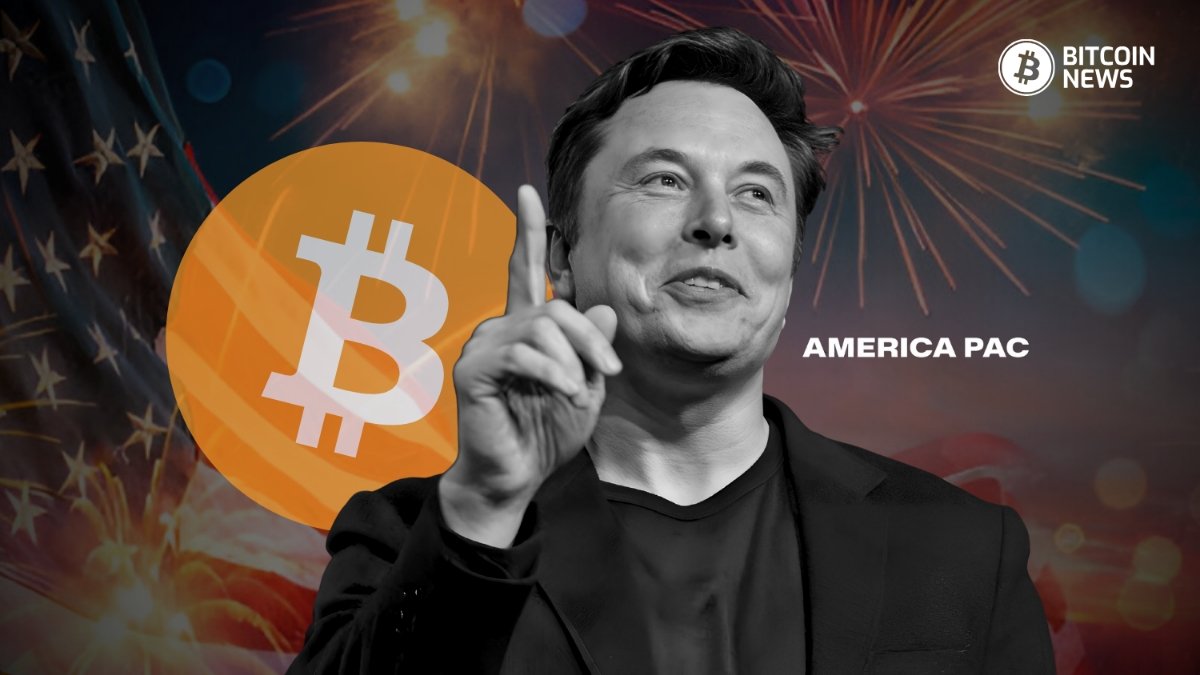Elon Musk Launches New Political Party, Declares War on the “Uniparty” System, Endorses Bitcoin
Tesla CEO announces “America Party” on social media platform X, fueled by poll results and strong criticisms against the two-party dominance.
Elon Musk, the controversial CEO of Tesla and SpaceX and a prominent Backbencher associated with former President Donald Trump, has officially launched a new political party called the “America Party”. He stated his intention to challenge the long-held premise of the U.S. two-party system in a message posted on his social media platform, X.

Party Formation and Digital Currency Stance
According to a poll cited by Musk, the platform received 1.24 million votes, with 2/3 approving the establishment of the new party.
“When it comes to bankrupting our country with waste & graft, we live in a one-party system, not a democracy. Today, the America Party is formed to give you back your freedom.”
While announcing the party, Musk simultaneously declared his intention to bring Bitcoin into the political mainstream, describing both the U.S. dollar and the fiat monetary system as “hopeless”. His justification for the party’s affinity for Bitcoin was direct: “Fiat is hopeless, so yes.”
Legacy of Support and Financial Backing
Musk has long expressed support for digital assets. This policy goal draws significance as Tesla, under his leadership, purchased $1.5 billion in Bitcoin in 2021. Combined holdings of the cryptocurrency at Tesla and SpaceX reportedly stand at nearly 19,794 BTC, valued at over $2 billion according to BitcoinTreasuries.
Advocating acceptance of Bitcoin within the platform’s policy stance positions it as a tool for economic reform and a symbol of individual empowerment against established financial structures.
Root Causes and Driving Factors
This new venture emerges in the wake of a notable rupture in the political relationship between Musk and President Donald Trump regarding fiscal policy. Disagreements over the latter’s spending package (“The Big, Beautiful Bill”) initiated the schism. Musk severely criticized the $3.4 trillion spending bill, warning of national bankruptcy.
“The dollar will be worth nothing if the US doesn’t do something about its national debt,” Musk wrote.
In response, Trump dismissed the potential for a third major party, stating simply: “A third political party has never been successful in the United States,” describing the enterprise as “going off the rails”.
Political Strategy and Initial Targets
The newly founded party intends to emerge immediately, influenced by an approach made famous by Trump. The initial focus is not on a presidential bid but on targeting specific, influential House districts and Senate seats in the upcoming 2026 midterm elections.
“One way to execute on this would be to laser-focus on just 2 or 3 Senate seats and 8 to 10 House districts. That would be enough to serve as the deciding vote on contentious laws.”
The party’s platform aligns with libertarian and conservative principles: pro-technology, anti-regulation in many sectors, pro-free speech, viewing Bitcoin adoption as both consistent with these principles and necessary fiscal reform.
Legacy and Future Implications
By formally integrating Bitcoin support into a political party’s platform, Musk aims not only to position cryptocurrency as a viable alternative currency within the economic political debate but also to broaden its mainstream appeal. Analysts ponder the outcome: would this strategic endorsement accelerate Bitcoin’s adoption, or does its linkage to a high-stakes political movement potentially invite controversy?
Those questions aside, one fact remains certain: The decision by the voice of a tech-giant and self-proclaimed disruptor to front a third political party and champion Bitcoin explicitly injects cryptocurrency directly into the mainstream political discourse in the United States. Other political figures and parties are formally required to address this significant development.












